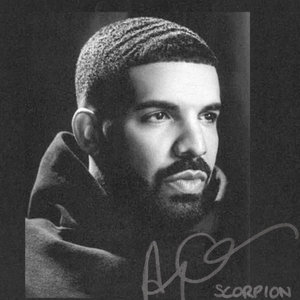The Johnny Rebel Controversy
Delve into the controversial journey of Johnny Rebel: Unraveling backlashes, racism, and societal challenges in this exclusive article

In a tale filled with controversy, spanning racist statements and songs that found immense popularity in some Southern juke joints, to being featured as the No. 2 bestseller on the website of the white supremacist record label Resistance Records, Johnny Rebel defies the norms of a typical country singer. Born Clifford Joseph Trahan, Johnny Rebel was an American singer-songwriter who achieved widespread notoriety for his music with racist themes. His songs ignited significant controversy and sparked accusations of promoting racism. Just like one of his works, a CD compilation that featured a cover displaying a hooded member of the Ku Klux Klan alongside a depiction of the Confederate battle flag. The album, titled "It's the Attitude, Stupid!", portrayed a hooded Klansman holding an MP3 player adorned with a Confederate flag texture, wearing earphones.
HOW IT ALL STARTED
Born in 1938 in Moss Bluff, Louisiana, Johnny Rebel commenced his career as a country and western musician during the 1950s. However, it wasn't until the 1960s that he began releasing songs that would eventually draw intense criticism and accusations of racism. Johnny Rebel's music frequently contained racially charged lyrics that targeted minority groups. His songs were replete with racial slurs, derogatory language, and themes that propagated hatred and discrimination. A significant number of his tracks featured stereotypical portrayals of African Americans, perpetuating harmful stereotypes, and reinforcing divisive attitudes.
As Johnny Rebel's music gained popularity, he faced condemnation from different groups and people who accused him of promoting hate speech and racial intolerance. Civil rights organizations criticized his songs for encouraging violence and spreading harmful beliefs. Numerous radio stations declined to play his music, and record labels distanced themselves from him because of the controversies surrounding his work. According to Johnny, he performed a Johnny Rebel song only once, during a show in Kaplan, Louisiana. He said that someone in the audience requested a Rebel song, and he agreed to perform it after confirming that there were no black people present.
A "MISUNDERSTAND"?
For Johnny, all these controversies seemed like a misunderstanding. In a 2003 interview, he claimed he "just did it for the money" and never intended to spread hate or create problems. According to him, "Blacks develop an attitude towards the whites, and they won't let it go. They won't let go of what happened. Why should we pay reparations for things that happened 200 years ago? I was run out of my country... My ancestors were run out of Nova Scotia." However, the accusations against him were not baseless. His music undeniably served as a platform for spreading hatred and discrimination and encouraged violence against minority groups. The impact of such music on society is significant, contributing to the marginalization and mistreatment of communities that are already vulnerable and targeted.
Despite facing extensive criticism, Johnny Rebel persisted in producing and releasing music throughout the 1970s and 1980s, which only cemented his reputation, whether as a racist artist or simply as a country singer, as he saw himself. However, his career remained constrained due to the controversial nature of his content, preventing him from achieving mainstream success or recognition. None of his songs ever became commercial hits, and Johnny eventually relocated to Nashville, Tennessee, to record with the newly established Todd Records. He developed a close relationship with Murray Nash, a songwriter for country singer George Morgan, and recorded four songs with Todd Records, but the label folded in 1964, marking another setback in Johnny Rebel's career.
A CAREER DOOMED TO FAILURE
It was practically impossible for Johnny to break into the mainstream or even sign with a conventional record label, but his songs ended up founding a degree of popularity in some Southern juke joints but never made it to the radio waves. Over time, Johnny Rebel largely forgot about his musical venture. However, with the rise of the Internet, he experienced a resurgence in popularity. In 2001, Johnny hired fan Brad Herman as his new manager. Under Herman's guidance, he recorded and released a new song titled "Infidel Anthem," expressing America's response to Osama bin Laden after the September 11 attacks. Herman managed to book him on The Howard Stern Show, where he promoted the song, sparking renewed interest in his music. Despite eventually parting ways with Herman, Johnny Rebel managed to release two new records in 2003.
Clifford Joseph Trahan, the unfamous Johnny Rebel, passed away in Rayne, Louisiana, on September 3, 2016, at the age of 77. Despite his death, the name Johnny Rebel continues to linger on the internet. His story remains one of controversy and allegations of racism, his music, filled with racist lyrics and offensive content, has received extensive criticism for promoting hate speech and furthering division within society. However, in the end, it stands as a reminder of the crucial need to reject and condemn all forms of racism, discrimination, and hatred in our communities.
.jpg)
.jpg)
.jpg)

